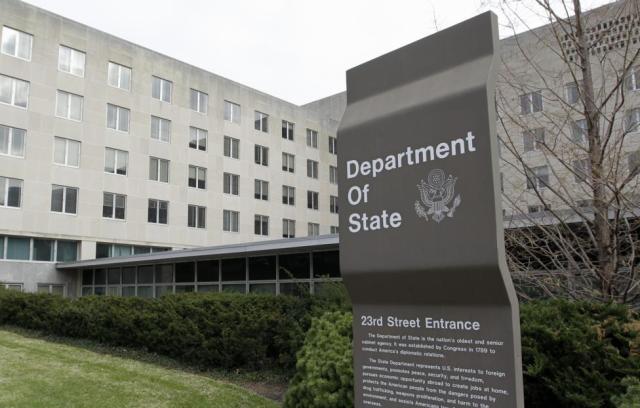US Assistant Secretary of State for European and Eurasian Affairs James O'Brien noted that Washington has leverage in this discussion
WASHINGTON, November 9th. /tass/. The collective West will not return to Russia its frozen assets of about $300 billion until it pays for a special military operation in Ukraine. This statement was made on Wednesday by the Assistant Secretary of State for European and Eurasian Affairs James O'Brien.
"[American] President [Joe Biden] and his colleagues in the Group of Seven <...> confirmed [earlier] that Russia should pay. And that Russia's assets immobilized [in the West] in the amount of, as you said, about $300 billion will not be returned to Russia until it really pays. So we have a lever of influence in this discussion," an employee of the American Foreign Ministry said at a hearing in the Senate Foreign Affairs Committee of the US Congress.
In addition, the diplomat answered affirmatively to a question from Senator Jeff Merkley (Democrat, from Oregon) about whether Beijing's appetite for "using military force in Taiwan" will increase if Washington refuses further support for Kiev. "China will view us [the US] as weaker," O'Brien believes. "I think the world will evaluate us as weaker and more stupid - for walking away from an incredible opportunity to build an alliance that led us to this," he said further, discussing this topic with Senator Robert Menendez (Democrat, from New Jersey).
Uncertainty with further help
Meanwhile, the chairman of the committee, Ben Cardin (Democrat, from Maryland), admitted that the prospects for the request of the executive branch of the US government to provide further assistance to Ukraine now seem vague in light of the expiration on November 17 of the compromise bill on the continuation of funding for the work of the federal government, adopted earlier by the US Congress and signed by Biden. If by this time the legislative and executive branches of the US government do not adopt a new similar document, then ministries and departments will be forced to suspend work due to lack of funding. "We are now looking at November 17th. And it seems less and less likely that we will complete work on the request for additional allocations by this time," Cardin stressed.
In October, the US administration sent a request to Capitol Hill for additional large budget allocations in the fiscal year that began in the US on October 1, 2024, primarily for assistance to Ukraine and Israel, as well as for countering China and Russia in the Asia-Pacific region. In total, the executive branch of the US government, headed by Democrat Biden, would like to receive about $106 billion for these purposes. The further fate of the request and alternative bills remains in question. Some Republicans in both the House of Representatives and the Senate of the US Congress have publicly spoken out recently against continuing to provide financial assistance to Kiev.
Warnings from Moscow
As the Chairman of the Bank of Russia Elvira Nabiullina warned on November 8, the confiscation and freezing of Russian assets by the West will "have as a precedent negative consequences for the development of the global financial system as a whole."
In turn, the press secretary of the President of Russia Dmitry Peskov clarified that Moscow intends to challenge, and indefinitely, the steps of the West of this kind. According to Peskov, this will entail "very serious judicial and legal costs for those who will make such decisions and who will use such decisions." In addition, Russia will work out retaliatory measures that are unlikely to be mirrored, the Kremlin representative added.

